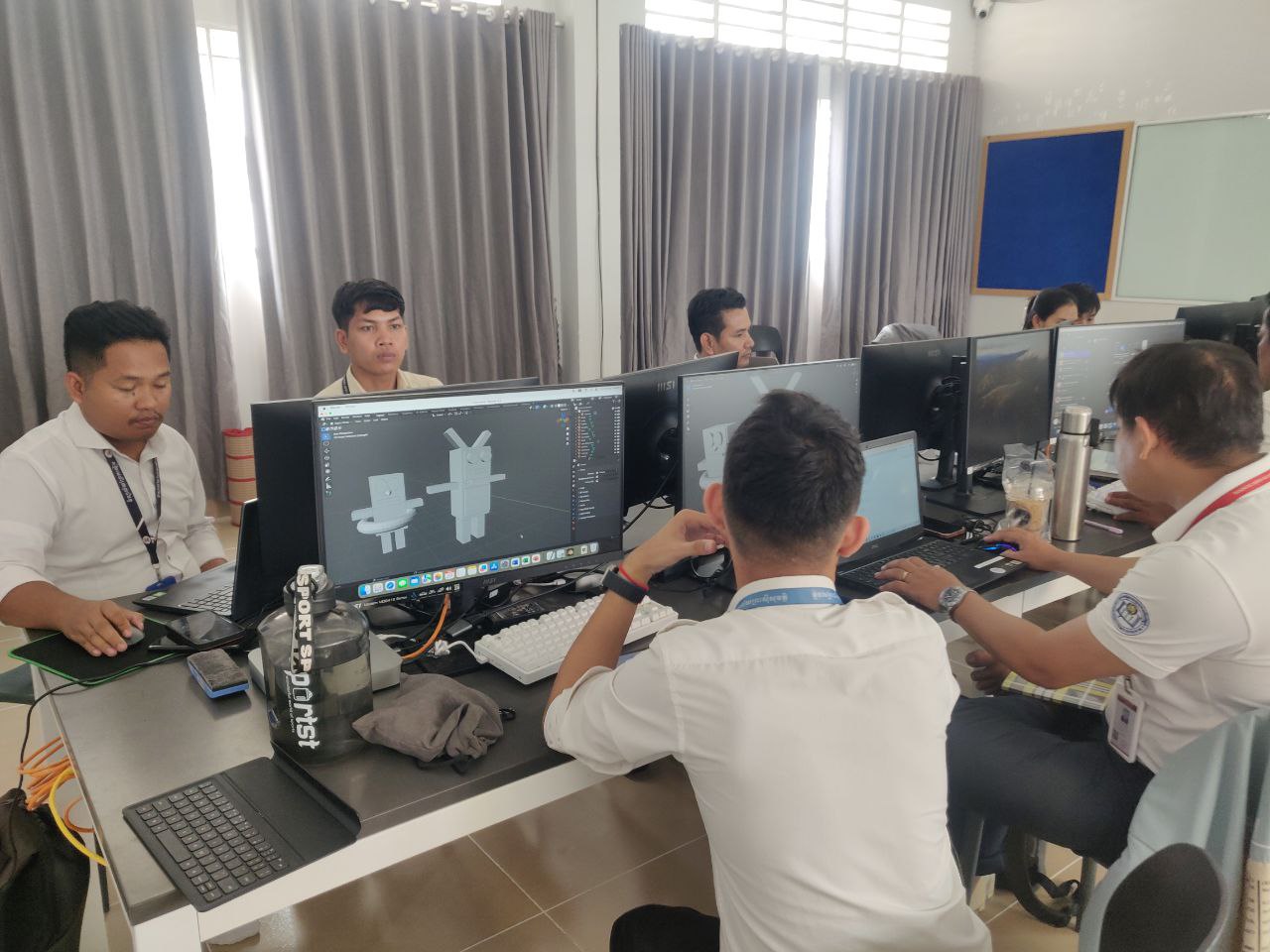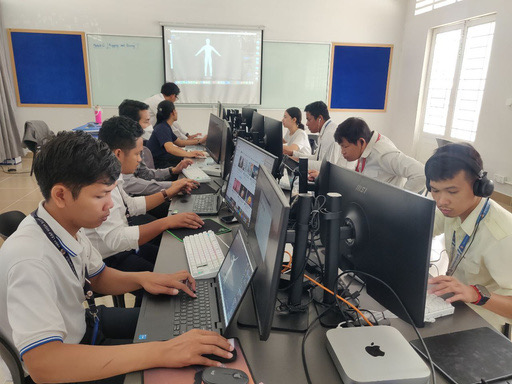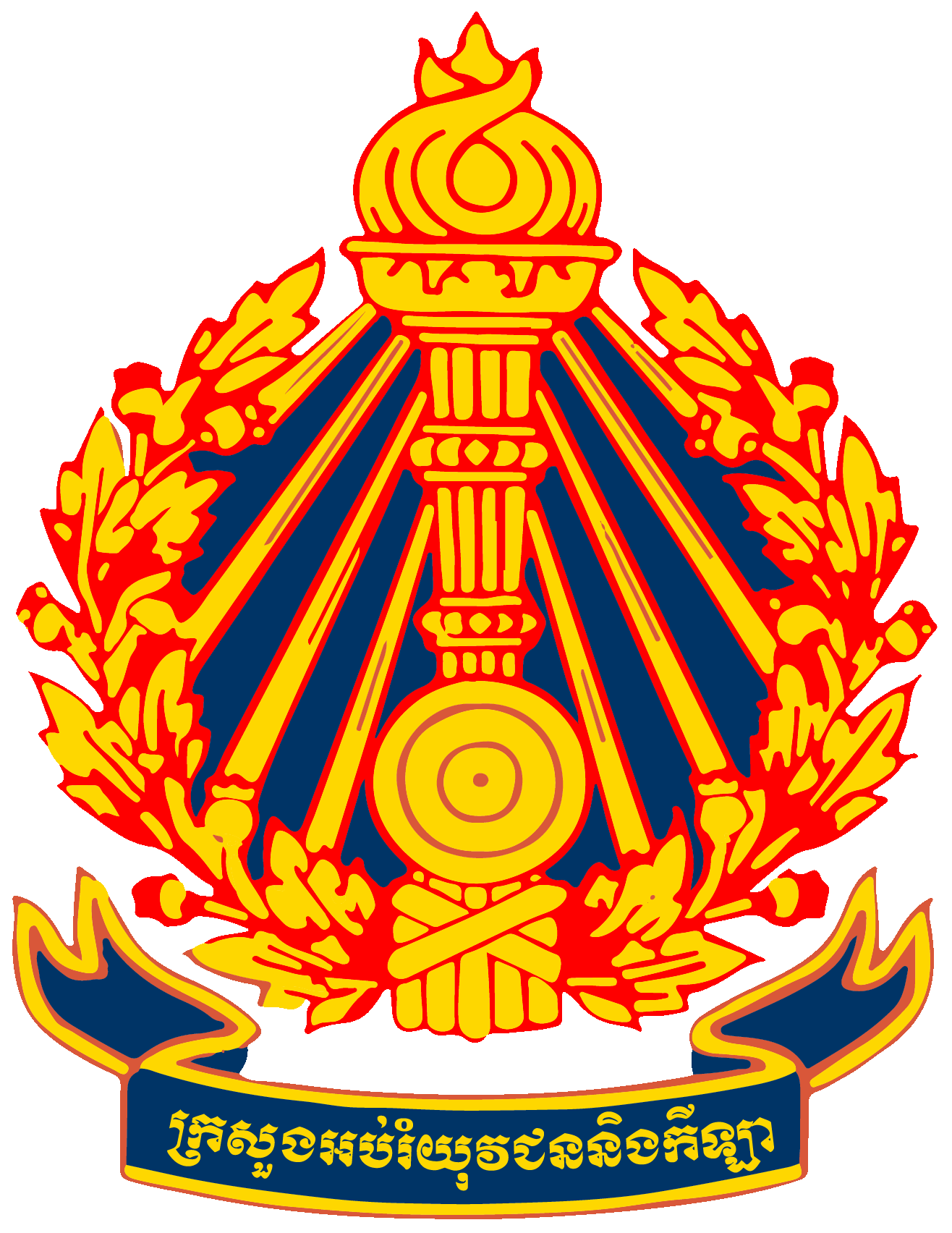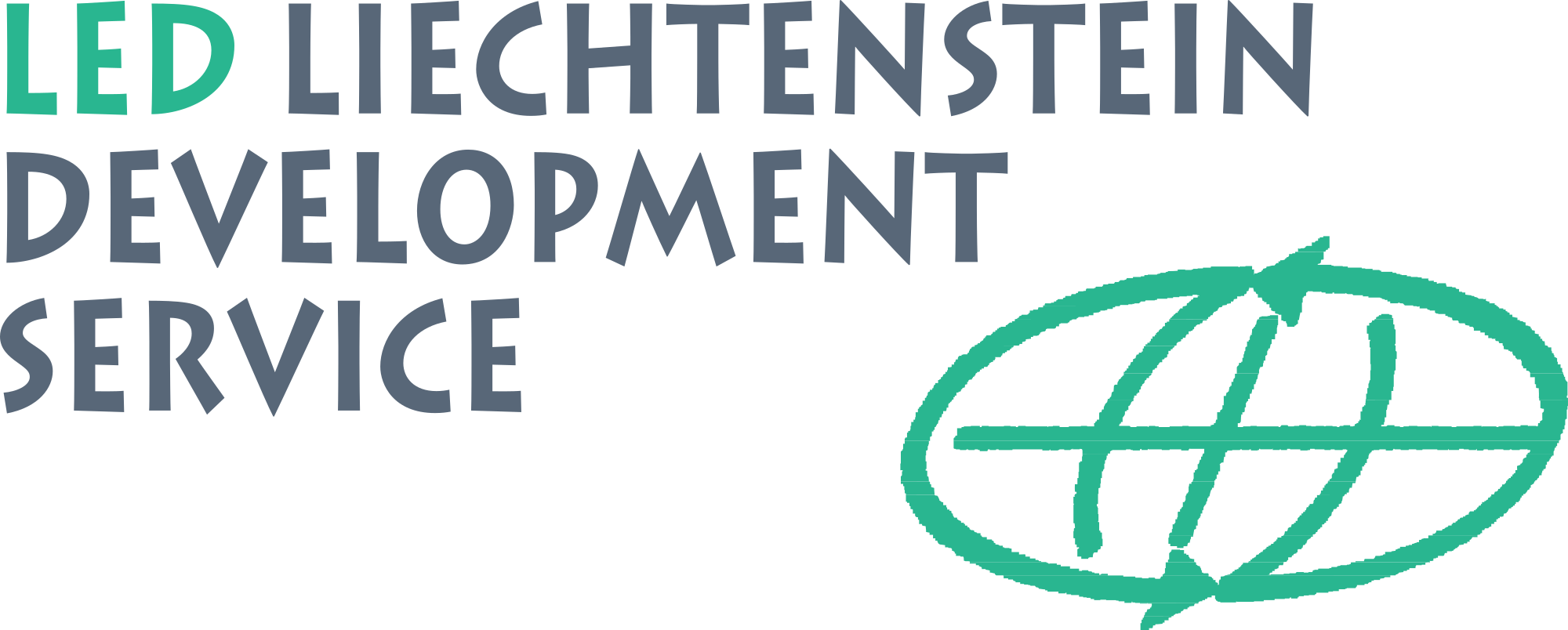Current Projects
Digital Education Program (DEP)
KAPE has done extensive advocacy to respond to the need for digital literacy among Cambodian youth. In 2024, this advocacy has led to the emplacement of five projects of various sizes and time frames. Although many of these projects are short-term in nature, they leave behind key documentation and programmatic milestones that will facilitate future efforts to help Cambodia realize the Pentagonal Strategy of the Royal Cambodian Government, which now includes a major focus on digital learning. During 2024, KAPE and its development partners invested $592,297 in promoting digital literacy.
I. ASEAN Digital Literacy Project (ADLP)
Project Description: ADLP: Online safety is now a major global concern as more and more people access the internet, particularly among youth. The ADLP Project is funded by the ASEAN Foundation and Google and is being implemented in all 10 ASEAN countries including Cambodia. The total size of the grant was $26,000. This project is an example of KAPE’s shift to corporate funding as a means of generating resources for its programming. KAPE is the partner chosen by the ASEAN Foundation to implement this regional project in Cambodia. The project trained 70 Master Trainers to deliver a modular package that promotes online safety to thousands of Cambodians and undertook a major research study that documents the ‘digital gap’ in Cambodia. KAPE presented the Monograph Research Study developed for Cambodia at a Regional Conference in Bangkok hosted by Google and the ASEAN Foundation.
Main Goal:
Project Key Activities:
A Glance into the Future:
Donor:
II. The Digital Visualization Technology Skills Accelerator Program (DViTSA)
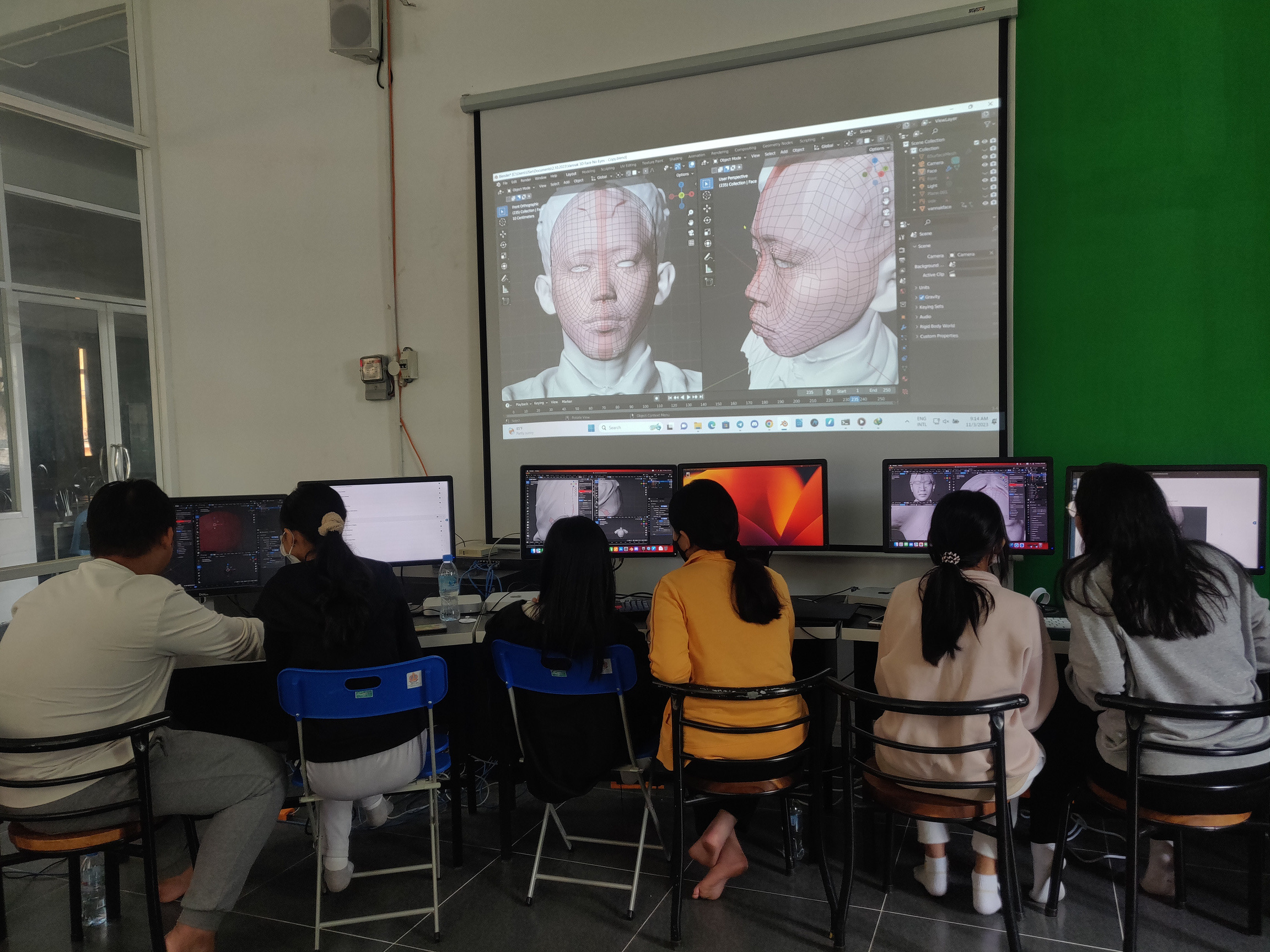 Project Description:
Project Description:
The Digital Visualization Technology Skills Accelerator Program(DViTSA) is a new skills initiative undertaken under the auspices of New Generation School (NGS) educational reforms of the Ministry of Education, Youth, and Sport (MoEYS). DViTSA is an example of an NGS innovation that seeks to emplace a hands-on learning program focused on digital visualization technology (e.g., gaming) in practical contexts. The program has piloted a unique Digital Visualization Technology curriculum that can be used in a secondary school context. This approach is unusual in that such programming is usually developed and implemented at tertiary level; it is believed that configuring this educational innovation in this way will help Cambodia to better accelerate its efforts to prepare Cambodian youth for the gaming technology revolution that is sweeping the world.
Main Goal:
Overall Objective (Impact): To enable Cambodia’s human resource development potential to accommodate and benefit from accelerating trends in the expansion of the global ICT sector and in particular the subsector of digital visualization (also known as gaming technology).
Specific Objective (Outcomes): To emplace a curricular and pedagogical framework in the public school system that will equip Cambodian youth to effectively participate and benefit from anticipated expansion in the ICT Sector and in particular the Digital Visualization/Gaming Subsector.
Special features of the program
The design of the present program was in direct response to a request from the MoEYS to seek ways to promote accelerated skills acquisition that responds to the needs of a 21st Century Economy. This request stems from Cambodia’s desire to quickly meet commitments as part of its induction into Global Accelerator Network of the World Economic Forum where Cambodia is one of 23 participating countries.
Project Key Activities:
- Refining and expanding the digital visualization curriculum.
- Training ICT teachers.
- Equipping gaming technology labs in target schools.
- Organizing a launch ceremony in 2025 with MoEYS and development partners.
- Implementing courses for almost 150 students with 100 more planned for 2026.
Direct Beneficiaries:
- Students across 4 New Generation Schools are participating in the digital visualization curriculum.
Program Locations:
- Preah Sisowath High School—NGS (Phnom Penh)
- Prek Leap High School—NGS (Phnom Penh)
- Yukunthor High School—NGS (Phnom Penh)
- Hun Sen Kampong Cham High School—NGS (Kampong Cham)
Program Achievements
- Refinement of DVITSA curriculum fully completed 100%.
- Nine teachers recruited and trained.
- Four labs equipped with 20 specialized workstations.
- Institutional networking with private partners.
- Completion of 3 pilot classes.
Program Impact
- Refinement of DVITSA curriculum fully completed 100%.
- Nine teachers recruited and trained.
- Four labs equipped with 20 specialized workstations.
- Institutional networking with private partners.
- Completion of 3 pilot classes.
Implementing Partners:
Ministry of Education, Youth and Sport (MoEYS) and Kampuchea Action to Promote Education (KAPE), One of Cambodia’s largest Local NGOs working in the education sector
A Glance into the Future:
- Implement the curriculum in all four NGS schools.
- Organize student competitions.
- Expand specialized teacher training.
- Consider hiring new ICT teachers and additional training programs.
Donor:
DViTSA is funded by LED Liechtenstein Development Service.
Start Date:
January 2025
Please click here to donwload DViTSA's Brochure [PDF] to read!
III. Improving Digital Education for All Learners (IDEAL) Project
Project Description: IDEAL: The Improving Digital Education for All Learners Project is a 3-year project that supports digital literacy at both primary and secondary school level. The project is supported by Child Fund Korea and seeks to invest $1 million in school ICT labs, 21st Century libraries, and wired classrooms that will be able to promote a high level of digital education. The project is directly supporting 7 secondary schools and 5 primary schools in Phnom Penh and Kandal Provinces. It will provide access to international digital platforms that promote ICT literacy as well as certificatory coursework in ICT that is internationally recognized. The project is working with internationally recognized digital partners from the UK (Everybody Counts – Mathematics) and the United States (Pearson – ICT certification).
Main Goal:
Project Key Activities:
A Glance into the Future:
Donor:
IV. Khmer Digital Literacy Program (KDLP)
KDLP: In 2023, KAPE entered into a partnership with Meta to contextualize the globally recognized digital curriculum developed by Meta in Khmer Language. This curriculum is known as WeThinkDigital. The total value of the grant received was $60,000. The curricular materials developed under KDLP were piloted in six New Generation Schools at secondary level and revised based on the results of the pilot. The contextualization of this curriculum into Khmer marks an important milestone that will lead to the availability of an important curricular framework that can be used in all public schools at no cost. The final curriculum document was completed in 2024. The contextualization process was done in close collaboration with MoEYS, which has now officially adopted the curriculum for general use in Cambodian schools.
Main Goal:
Project Key Activities:
A Glance into the Future:
Donor:
VI. Media, Information, and Digital Literacy (MIDL)
Media, Information, and Digital Literacy (MIDL) Project provides NGOs, CSOs as well as OPEs (Organizations of People with Disabilities) with an interrelated set of competencies relating to MIDL. The project is funded by UNESCO. Key activities in the project focus on capacity-building for target stakeholders that will help them to maximize the advantages derived from access to media and information sources while minimizing any harm that may arise from such information, especially when it occurs in digital and communication landscapes. Media and information literacy covers competencies that enable vulnerable stakeholders to engage with information as well as other forms of content that various institutions may disseminate critically and effectively. The project also seeks to heighten the awareness of institutions that disseminate information to be aware of the different needs of different stakeholders (e.g., those with disabilities). In this respect, the project trains institutions to tailor information to take various forms that meets the needs of diverse populations. The project equips vulnerable stakeholders with the necessary knowledge, resources, and competencies to promote further Media, Information and Digital Literacy Skills.
Main Goal:
Project Key Activities:
A Glance into the Future:
Donor:
117
Preschool(s)
178
Primary Schools
207
High Schools
2
Higher Education Institutions
163,072
Students
4,487
Teachers/Directors
5,362
Stakeholders




